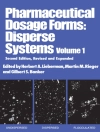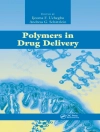It is essential to force a U-turn in the way contemporary medicine approaches ill-health diseases. Early prevention of primary risk factors is a far more promising approach compared to late acute treatment of secondary risk factors in reducing the cost burden of Public Health, not mentioning the expected benefits of the former versus the latter approaches with regards to the Quality of Life. Wild-Type Food in Health Promotion and Disease Prevention: The Columbus Concept is one of the first books to focus on the role of omega-6/3 polyunsaturated fatty acids in unhealthy diets. The volume is divided into five sections. The first identifies the missing essential ratio of competing essential fatty acids in the human diet and relates them to the upsurge of modern chronic disease and associated health costs. The authors also explain the scientific basis of the Columbus Concept and the evidence supporting the rehabilitation of dietary/blood cholesterol. In the second section, authors discuss the essential ingredients in a daily diet that make blood vessels healthy and resistant. The third section introduces the functional part of the diet that brings about health benefits and healthy blood vessels. The fourth section details the health benefits of wild-type foods in various cultures. The final section investigates the possibility for novel sources for health promotion. Wild-Type Food in Health Promotion and Disease Prevention: The Columbus Concept presents a cutting-edge, in-depth investigation into new methods of health promotion.
قائمة المحتويات
The Columbus Concept: Scope and Limitation.- Wild-Type Land-Based Food in Health Promotion and Disease Prevention.- The Japanese Experience.- High ?6:?3 Fatty Acid Ratio.- Omega-6/Omega-3 Fatty Acid Ratio is Important for Health.- Tissue Omega-6 and Omega-3 Fatty Acids in Health and Disease.- ?-3 Fatty Acids and the Risk of Coronary Heart Disease.- The Nutritional Conditions of Human Evolution.- Essential Nutrients in the Wild: Health Benefits.- The “Wild-Type” Egg.- The Essentiality of Eicosapentaenoic Acid in Breast Milk During Human Lactation.- The Natural Fatty Acid Compositions of Eggs of Wild Birds and the Consequences of Domestication.- Simultaneous Enrichment of Eggs With PUFAs and Antioxidants.- Egg Composition vs CVD Risk.- Omega-3 Fatty Acids.- Chia as a New Source of ?-3 Fatty Acids.- Evaluating the Biological Activity and Effects on Human Health of Fish Oil and Its Omega-3 Fatty Acids.- Omega-3 Fatty Acids and Mediterranean Diet in the Prevention and Treatment of Cardiovascular Diseases.- Dietary Prevention of Coronary Heart Disease.- Fatty Acids, Insulin Resistance and Diabetes.- Fatty Acids in the Causation and Therapy of Metabolic Syndrome.- Immune Modulation and Cancer Resistance.- ?-3 Fatty Acids in Physical and Mental Health and Disease.- Dietary Prevention of Adult Macular Degeneration.- Promoting Eye and Skin Health Through Intake of the Natural Carotenoid Lutein.- Calcium Phosphate.- Functional Components in the Wild: Health Benefits.- Natural Antioxidants in Land- and Marine-Based Wild-Type Food.- Chia Seeds and the Columbus Concept.- Health Effects of Foods Rich in Polyphenols.- Polyphenols and Immunity.- Flavonoid-Rich Dietary Supplements’ Influence on Heart Failure.- Dietary Carotenoids in Health Promotion.- Dietary Intake of Lycopene and Risk of Prostate Cancer.- Wild-Type Food in Different Cultures: Health Benefits.- Local Wild Foods in the Mediterranean Countries.- Changing the Spanish-Mediterranean Diet.- Lebanese Traditional Diets and Health Effects.- Fats and Fatty Acids in Nutrition of the Iranian People.- Southeast Asian Diets and Health Promotion.- The Columbus Concept: The Market Approach.- Columbus Feed Around the World.- Modification of a National Diet and Lifestyle Toward Wild-Type Foods.- Studies on the Effects of Diets Realistic for Westernized People on Plasma Lipoprotein Composition, Metabolism, and Atherosclerosis in Vervet Monkeys.












